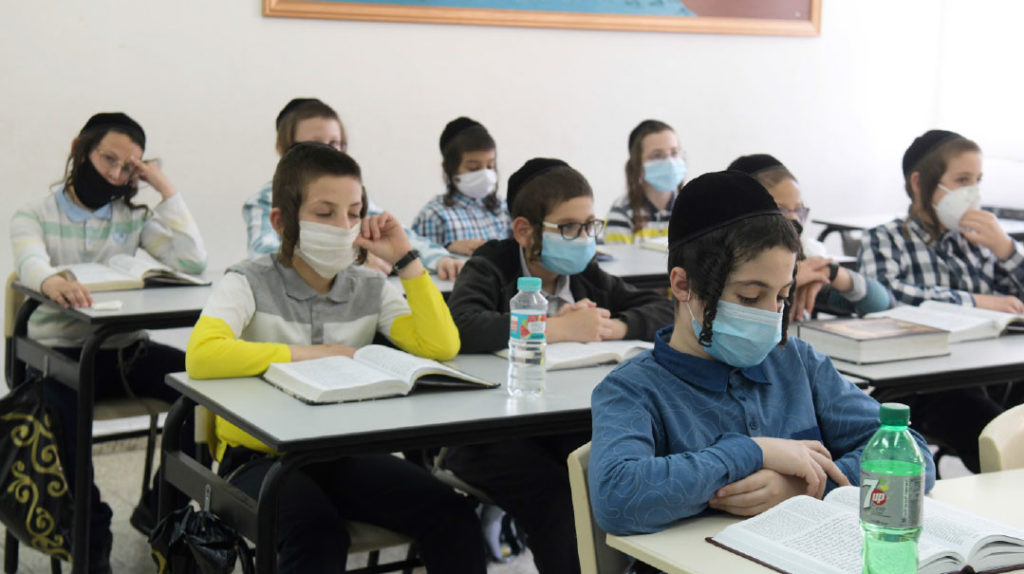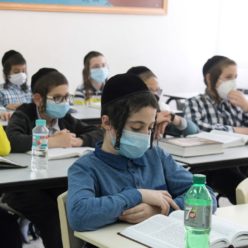I’ve never heard Ahavah Rabbah sung to this tune before, but this Elul it sounds so right
I

as I walk my little one to kindergarten. For him, the routine is still unfamiliar and the school building intimidating. So I hold his hand and do my best to smooth the way.
It’s hot outside but there’s a faint breeze, a promise that the blazing heat of this unforgiving summer will end sometime soon. (Will it? Will we ever again feel the caress of good times, the confidence of being in the good graces of our Maker?)
My little one chatters about the cars, cats, and birds as we make our way up the hill. He delights in the pomegranate tree laden with fruit, a crown studding each swollen specimen. I’m not as impressed. These pomegranates aren’t deep burgundy. They’re barely even red — more like a weak green with the palest pink overlay. Will they be ready in time for Rosh Hashanah? (Will we? We have a lot of ripening to do, we realized that all too well this year.)
I hold my son’s hand as we enter the school gates, letting go only once we reach his classroom. After I bid him goodbye, I linger just out of sight and watch as he surveys the boys playing at their low tables, deciding which group to join.
I head back up the stairs. There’s so much work waiting for me. Time to hurry home and get moving on my to-do list.
Then a strain of song stops me. It’s the fourth grade, singing Ahavah Rabbah to the melody of the Bobover wedding march. I’ve never heard these words sung to this tune and my steps slow as I take in the measured, regal bars. The little voices carry the song into the pomegranate-scented air, a melody of majesty, of confidence, of commitment. Their prelude to Shema, it’s the march of a chassan toward his future.
Three little boys in their requisite masks are seated on chairs outside the classroom, singing along. I remember hearing that this class exceeds the maximum COVID allowance by a margin too small to hire another teacher. So a few boys sit just outside the wide-open door with a view of the board, the rebbi, and their friends — not quite apart but not quite together.
As they reach the words “v’keiravtanu l’Shimcha hagadol,” the rebbi steps outside. The encouraging smile beneath his plastic face guard urges the three boys to sing louder.
I have so much to do, so many emails to answer, so many items on my list. But I move slowly, so slowly, to the tune of the Wedding March, and the trees and stones turn blurry as I contemplate these masked little boys, their make-it-work-despite-it-all rebbeim, their praying parents at home — all starting Elul the only way we know how.
We’ve seen this year just how uncertain our existence can be. Our usual affirmations of loyalty, faith, and community were rejected as we were banished from shuls and yeshivos. But here we are starting a school year again, marching toward the future praying it will be bright and blessed. Here we are taking step after hopeful step, seeking connection and commitment. Here we are packing up our children with sandwiches and masks, hopes and prayers. And bar by regal bar, we’re singing about eternal love.
I’ve never heard Ahavah Rabbah sung to this tune before, but this Elul it sounds so right. May it be a year without barriers, shields, or masks — just acceptance, connection, and the closeness we all crave.
(Originally featured in Mishpacha, Issue 827)




